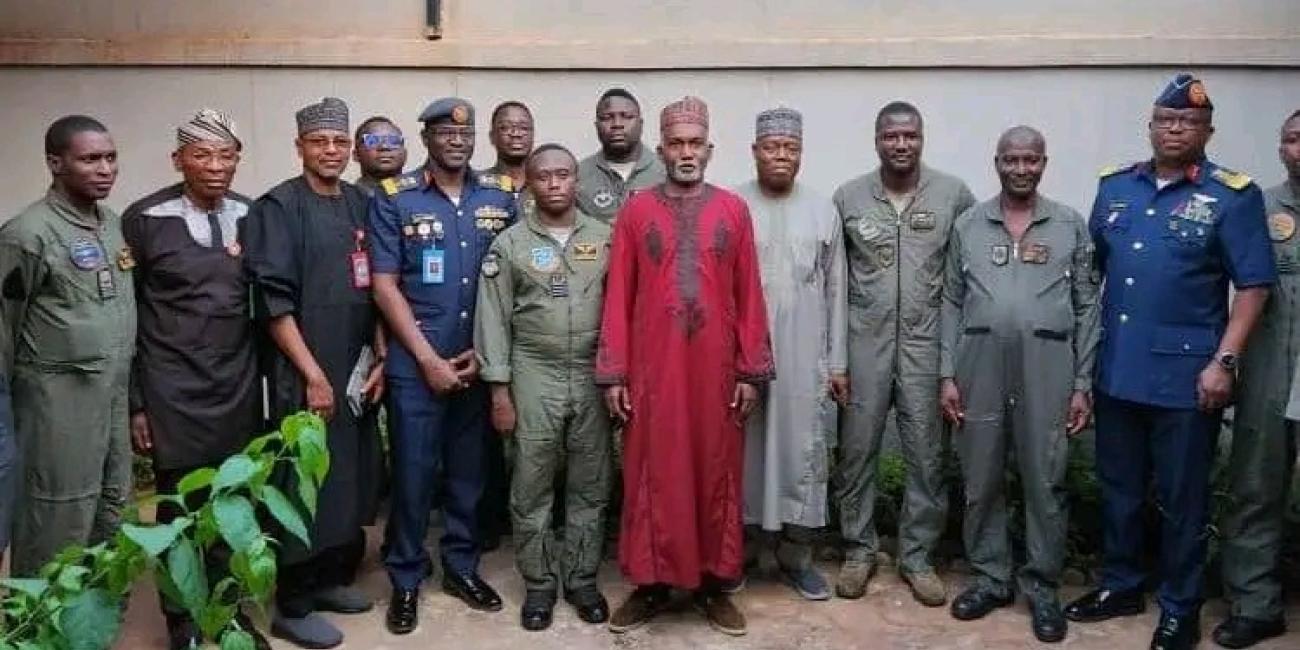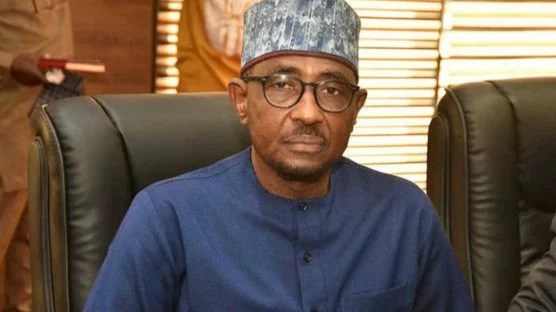Headlines
41 Years After, ASUU Splits into Factions

The 41-year-old Academic Staff Union of Universities has split with the formation of a new union, the Congress of University Academics.
Lecturers from five universities in the country announced the formation of CONUA in Ile-Ife on Saturday.
The lecturers, who unveiled the new union, were from the Federal University, Lokoja, Kogi State; Kwara State University, Malete; Ambrose Ali University Expoma, Edo State; Federal University, Oye-Ekiti and Obafemi Awolowo University, Ile-Ife.
But ASUU President, Prof Biodun Ogunyemi, in an interview with The PUNCH on Sunday said the union was not aware of any splinter group.
Ogunyemi said some vice-chancellors, who were rebuked for high-handedness, were encouraging members of the union in their institutions to rebel.
‘We’ll ensure stable academic calendar’
Addressing journalists during the first stakeholders’ meeting of the new group at the OAU, CONUA National Coordinator, Dr Niyi Sumonu, explained that the new group was formed because of the need for new approach in handling issues affecting universities across the country.
Sumonu said the first mandate of the new union was to ensure a stable academic calendar in order to improve quality of education in the country’s ivory towers.
He said, “For standard of education to be very high, we need a stable academic calendar. We need to be able to predict academic session. We need to have innovation which is difficult without continuity.
“We also need to be in tune with modern realities. Our union will approach the matter of engagement with all stakeholders in an engaging manner to have a common ground for moving forward.”
We are not anti-govt –New union
“Our union is not anti-government, if government and by extension, administrators of universities are doing well, we will let the world know and we will quickly knock them, provide alternative constructive criticism and take them to task where they are not doing well.
“We will not wait for them to make mistakes before we intervene. We have vision and will provide ahead what can be done to have better results. If that is done we are sure we will have a better way to move forward.
“Members believe we should have alternative ways of solving problems. Members have been contributing very well to the finance of the union. When we fulfill and do all that we need to do, financial constraints will be forgotten.
“We have been at this for over three years in Ife. We have been waxing stronger and members from other universities have been experiencing what we experienced here, hence, the decision to come together to form a national union,” Sumonu added.
Asked if the union was not out to rival ASUU, the flagship umbrella body for lecturers, CONUA National Publicity Secretary, Dr Nwoke Earnest, explained that another key objective of the group was to “redefine academic unionism in Nigeria and is not ready to take issue with any union.”
He explained that CONAU would prefer to proffer solutions to issues before they become problematic, adding that the essence of forming the group was to enhance interaction with the educational system without being confrontational but through a synergy that would involve all stakeholders.
Some VCs determined to split our union –ASUU
The ASUU National President, Ogunyemi, said some lecturers who were sanctioned by the union about two years ago had decided to kick against the sanctions by forming a parallel group.
Ogunyemi said, “I don’t know that group that they are talking about. What happened at OAU was that there were some people we sanctioned two years back; those people that acted contrary to the letters and spirit of our constitution. We sanctioned them and they decided to kick against the sanctions.
“Some of them agreed to serve the punishment and they have since rejoined the union. But those who do not want to serve the terms of punishment are now saying they will join forces with some individuals who have issues with the union.
“As far as we know, that is what they have been trying to do and we have been on that for about two years now. What I know is that whether in Ife, Oye Ekiti or Lokoja, we know that some vice-chancellors are encouraging rebellion against the union. Particularly in Oye Ekiti and Lokoja, we have issues with their VCs because of the way they are running their universities.
“ASUU has had reasons to complain publicly about the high-handedness of the VCs. Those VCs expectedly will want to take it out on the union and encourage that kind of rebellious attitude.”
FG sets up panel to vet CONUA’s application
On his part, the Minister of Labour and Employment, Dr Chris Ngige, said the Federal Government was looking at the application submitted by CONUA.
Although the minister confirmed the group was not registered yet, he noted that he had asked a committee to look into the application.
The Minister of Labour and Employment in a telephone interview on Sunday, said, “They (the new union) are not registered yet. Their application is with the ministry. It has not been treated. We will look at it. We are still looking at their application. I have asked a committee to look at it.
“When we look at the committee report, we will see. The application came since April. It is passing through a process.”
The Punch
Headlines
Free at Last: Burkina Faso Releases 11 Nigerian Soldiers

Burkina Faso has released Nigerian soldiers who were detained after their aircraft made a forced landing in the Sahelian country earlier this month, Nigerian officials said.
In a statement, Alkasim Abdulkadir, Tuggar’s spokesperson, said both sides resolved the matter amicably and secured the release of the Nigerian Air Force pilots and crew.
The soldiers had been held for nearly two weeks after the Confederation of Sahel States (AES) described the aircraft’s landing as an “unfriendly act” carried out in defiance of international law.
The Nigerian Air Force, however, said the crew encountered a technical issue that required a precautionary landing in Bobo-Dioulasso, the nearest available airfield. It said the landing complied with standard safety procedures and international aviation protocols.
Headlines
Corruption Allegations: NMDPRA Boss Farouk Ahmed Meets Tinubu, Resigns

The Chief Executive Officer (CEO) of the Nigerian Midstream and Downstream Petroleum Regulatory Authority (NMDPRA), Farouk Ahmed, has resigned following a meeting with President Bola Tinubu amid corruption allegations.
Tinubu, on Wednesday, summoned Ahmed to the Presidential Villa in Abuja, following allegations of economic sabotage and corruption.
Also caught in the web of resignation was the CEO of the Nigeria Upstream Petroleum Regulatory Commission (NUPRC), Gbenga Komolafe, according to a statement on Wednesday by Bayo Onanuga, special adviser to the president on information and strategy.
Tinubu was said to have nominated successors to the senate for approval.
“Tinubu has asked the Senate to approve the nominations of two new chief executives for the Nigerian Midstream and Downstream Petroleum Regulatory Authority (NMDPRA) and the Nigerian Upstream Petroleum Regulatory Commission (NUPRC),” the statement reads.
“The requests followed the resignation of Engineer Farouk Ahmed of the NMDPRA and Gbenga Komolafe of the NUPRC.
“Both officials were appointed in 2021 by former President Buhari to lead the two regulatory agencies created by the Petroleum Industry Act (PIA).
“To fill these positions, President Tinubu has written to the Senate, requesting expedited confirmation of Oritsemeyiwa Amanorisewo Eyesan as CEO of NUPRC and Engineer Saidu Aliyu Mohammed as CEO of NMDPRA.”
Onanuga said the two nominees are seasoned professionals in the oil and gas industry.
Headlines
I’m Ready for Probe, NMDPRA Boss Farouk Ahmed Responds to Dangote’s Corruption Allegation

The Chief Executive Officer of the Nigerian Midstream and Downstream Petroleum Regulatory Authority (NMDPRA), Engr. Farouk Ahmed, has responded to recent claims regarding the financing of his children’s education and his integrity in office, insisting that the allegations are misleading and ill-timed.
Ahmed said the allegations “necessitated this response, not because I fear scrutiny of my finances, which I welcome, but because the timing and nature of these claims demand context that only three decades of public service can provide.”
Ahmed highlighted his career in Nigeria’s petroleum sector, which began in 1991, noting that he rose through merit rather than political patronage.
He recalled his experience across technical divisions, crude oil marketing, gas supply monitoring, and downstream operations, stressing that his decisions have always been guided by Nigeria’s national interest.
“I spent my formative years in the technical divisions, where decisions are measured not by political expediency but by engineering precision and market realities,” he said.
He further outlined his rise to General Manager of the Crude Oil Marketing Division in 2012 and later Deputy Director in 2015, before being appointed NMDPRA Chief Executive in 2021.
On assuming the role, Ahmed said, he understood the challenges of implementing reforms under the Petroleum Industry Act, acknowledging that enforcing transparency in a sector long characterised by opacity would inevitably meet resistance.
Addressing the allegations about his children’s education, Ahmed said the claim that he spent $5 million on their Swiss schooling was misleading. “Three of my four children received substantial merit-based scholarships ranging from 40% to 65% of tuition costs, verifiable information are available to any authorised investigation,” he said, adding that contributions from his late father, a Northern Nigerian businessman, further supported the education costs.
He added: “When scholarships, family contributions, and my own savings accumulated over three decades are properly accounted for, my personal financial obligation was entirely consistent with someone of my professional standing and length of service.”
Ahmed confirmed that his annual compensation of approximately N48 million, including allowances, is publicly documented, and that he has submitted detailed asset declarations to the Code of Conduct Bureau throughout his career.
The CEO also linked the timing of the allegations to recent regulatory actions taken by NMDPRA.
“These allegations resurface precisely when NMDPRA has enforced quality standards revealing substandard petroleum products in the market, implemented stricter licensing requirements, and insisted on transparent pricing mechanisms that eliminate opacity benefiting certain market players. This timing is not coincidental,” Ahmed said.
He defended the authority’s import licensing decisions, emphasizing that they comply with Section 7 of the Petroleum Industry Act, which mandates supply security and prevention of scarcity.
“Granting import licenses when domestic supply proves insufficient is not sabotage, it is our legal duty,” he said.
Ahmed invited formal investigations into his finances and tenure, stating: “I formally and publicly request the Code of Conduct Bureau to conduct comprehensive review of all my asset declarations since 1991, the Economic and Financial Crimes Commission to examine all my financial transactions and sources of income, and the National Assembly to exercise its oversight function regarding any allegations of regulatory compromise during my tenure. I will cooperate fully, provide all documentation, and answer all questions under oath if required.”
Concluding, Ahmed reaffirmed his commitment to regulatory independence and transparency.
“Three decades of service to Nigeria’s petroleum sector have taught me that integrity is tested not in comfortable moments but when powerful interests demand compromise. My response is simple: investigate thoroughly, examine every claim, scrutinize every transaction. My record both financial and professional will withstand any legitimate inquiry.”






